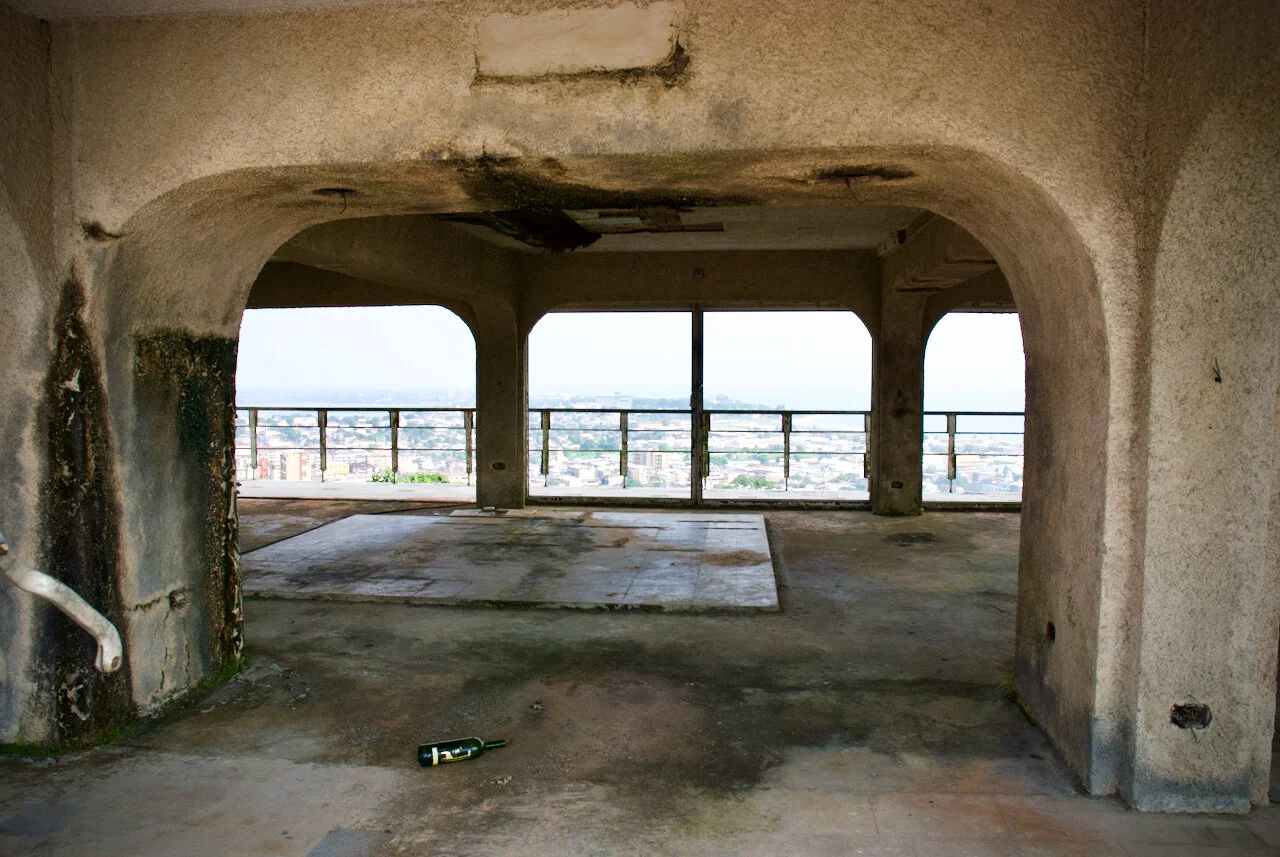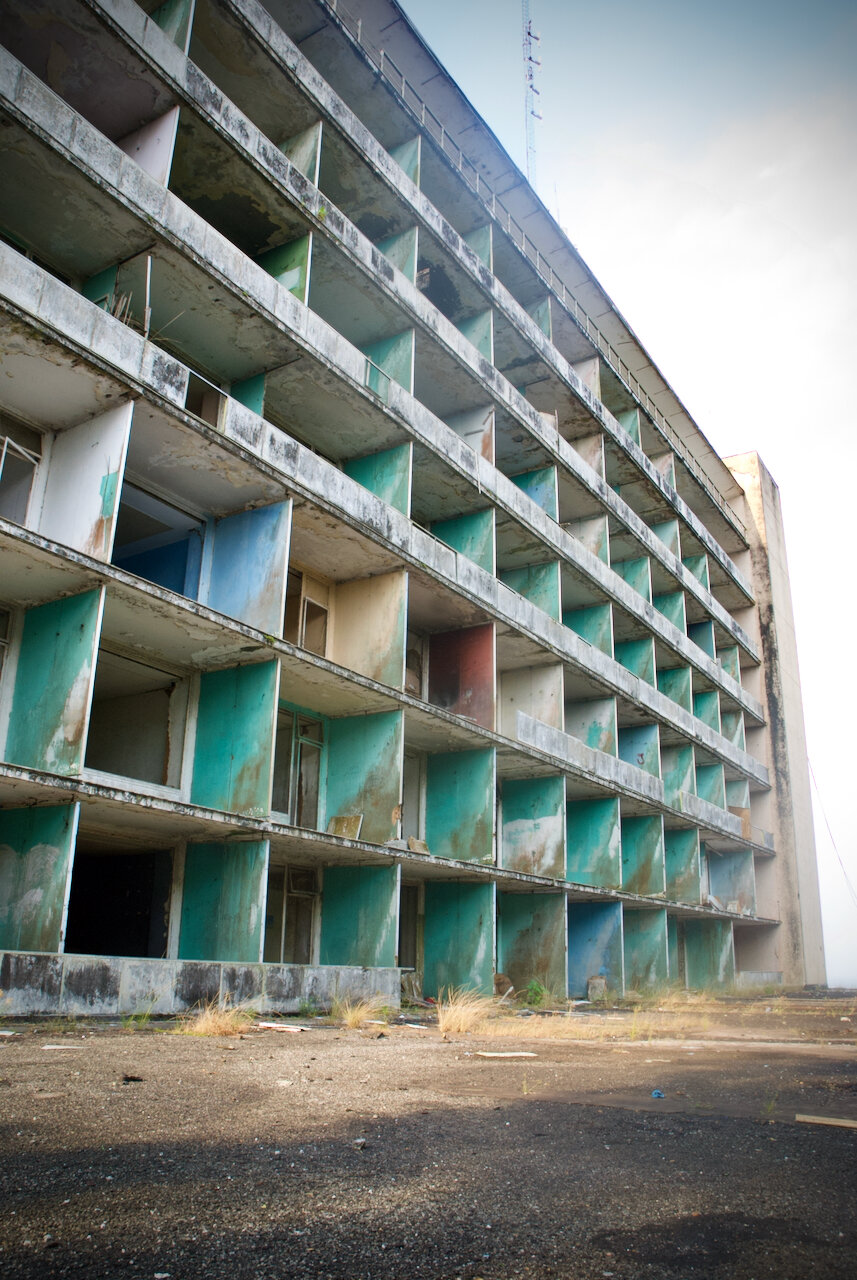A few moons ago. At the beginning of 2013 Paul and Joel Redman and myself embarked on a mind bogglingly intrepid series of journeys visiting and documenting the lives of indigenous peoples across the world for a series of films and photographs commissioned by the Ford Foundation. We had been doing projects of this nature specialising in the lives of traditional and marginalised peoples for some time. However this ambitious series grew from a few films and exhibitions to the beginnings of a movement and now the growth of an organisation If Not Us Then Who which trains and mentors indigenous film makers and artists across the world. When this photograph was taken my mind was on other things. We were journeying back to the remote town of Bonanza along a series of extraordinary rivers which cut through the jungle and mountains of the Bosawas Biosphere. This really is a land which time forgot. Enormous trees with vast trunks lean across the narrow rivers, giving a sense of nature arching and looming above you, you feel utterly compressed by its impressive power, nowhere can you feel smaller than when sat in a tiny canoe chugging through this thick forest. It’s utterly remote, when the Spanish arrived the native peoples, mostly Mayangna, retreated into this dense labyrinth and ever since it has served as a refuge, their final territories. For some time you can travel along and not see anyone, you become entranced and mesmerised by the sheer green walls opposite you, then you go around a bend in the river and there on the shoreline are three or four small canoes tied to a tree, smoke comes wafting across from a fireside hidden from view nearby, a group of children clutch to the vegetation and watch us pass. Then a long way still and you see no one. In the afternoon a long metallic canoe swished past us laden with sacks. The two skippers, ours and the one from the other craft shouted a greeting to one another as we passed. I caught in the flash of their passing the image of their skipper, he was tall and well built, one hand on the tiller the other resting on the handle of a rather magnificent looking revolver which hung from his belt. As we rocked in the wake our skipper laughed and said matter of factly. “Cocaine, from Honduras.” And we carried on. It rained and sometimes we were utterly soaked, small pools of water collecting around your haunches, then the sun came out and it blasted heat down upon us. The river at that time of the year was low and we frequently had to haul our film gear some distance along the river bank through the jungle to a point suitable for the boat to rejoin. Then we’d walk back to the offending shallows or rocks and physically drag the canoe along until the river deepened enough for us to continue.
Liberia - walking through the ghostly ruins of the Intercontinental Hotel, Monrovia
The view from the top of the old Intercontinental Hotel is well worth the haggle. Bartering with the Nigerian peacekeepers who lounge around in the old lobby, their equipment and rifles spread about them as though they themselves are newly arrived guests waiting for the long forgotten bell boys to carry the gear to their rooms. It is a pleasant and slightly informal affair. One enters a process of gentle joking and teasing remonstration with the soldiers who guard the deserted building. The sergeant passes us on to a junior officer who in turn introduces us to a Major in a vest who had clearly been stirred from an afternoon nap. After the usual talk and introductions they wave us through the protective cordon and we are free to wander about the vast crumbling emptiness. The savage war and the internally displaced have left their mark. This was once a swinging place, a nine-story 106-room hotel built back in 1960 when things were very different here. The rich and famous came and sipped cocktails from its famous rooftop bar after eating oysters in the French restaurant. Idi Amin is said to have frequently used its vast swimming pool. Now there is a stark sadness to the dank abandon, if walls could talk, one probably wouldn’t want to hear the details. The restaurant and kitchens on the top floor are smashed and broken, a few shining tiles not removed from the concrete flooring preserve the original place where dancers once swayed in front of the band stand. Everything is gutted, pulled from its sockets, broken and smashed in a turmoil of anarchy hard to comprehend now as one gazes across the city, watching the hawks and eagles lazily drift amid the thermals thrown up by the Atlantic.





